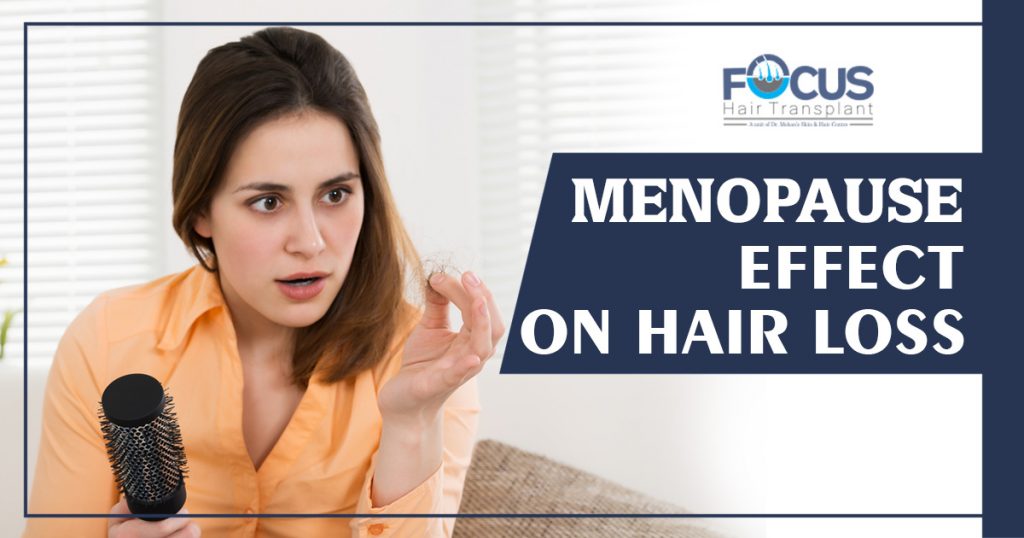How does Menopause Effect Hair Loss
Menopause is an inevitable event that every woman experiences in her lifetime. Whereas it is a natural process of every woman’s life, it can have quite a few repercussions on your health and hair. It usually happens when the woman achieves the age of 51. Some women may experience it as early as 45 while some may undergo the same phase as late as 55. This phase triggers a lot of changes in the woman’s body. It signifies the cessation of a woman’s menstrual cycles and the end of her reproductive age. While it marks the end of her reproductive cycle, it also indicates a reduction in the activity of hormones that had been in play till now. Some of the concerned hormones also influence hair growth.
Effect of menopause on hair loss
When the woman undergoes menopause, the estrogen levels of the woman decline, leading to a problem in hair growth. It causes slowdown in hair growth and thinning of hair. There is another effect of the decrease in estrogen. It triggers an increase in the production of androgens which again leads to shrinkage of hair follicles, causing hair loss. It has another ill effect: it will give rise to unwanted hair in the chin and upper lip. Well, hair growth in these areas is certainly not desirable. Usually, the reason behind menopausal hair loss is hormonal imbalance but it may also be due to stress, lack of nutrients, illness or some medication. Whatever the case, it may require a hair transplant if the loss is severe. Hair transplant is one of the hair loss treatment methodologies which is quite prevalent in modern times. You can avail the procedure in two popular forms: FUT and FUE. While FUT is the traditional technique, FUE is the more modern one. Both techniques help in the transplantation of hair but they differ in their procedure, level of patient’s comfort and healing time.
Is it possible to stop menopause-related hair loss?
Hair loss which occurs due to menopause is usually due to hormonal changes. It can be stopped. The trick is to take better care of your hair, reduce heat styling and managing your stress-causing factors. You will also have to take care of the diet that you have. Be sure that you have the right nutrients in the right quantity. Your diet should be rich in iron, and vitamin B to ensure good hair growth.
If you feel that you have excess male androgens and your hair has low chances of resuming its normal growth, then it is better that you visit a hair loss specialist.


No Comments